





Colorado Laws and Reality – Our Children Are Being Taken to Adult Court
Juveniles Charged as Adults by Colorado Juvenile Criminal Defense Lawyer – H. Michael Steinberg
A recent study of Colorado Juvenile cases and the laws governing when kids are charged with criminal acts – found that the enormous power of the District Attorney in trying kids as adults has not worked to make us safer. This article address the laws and facts of the Colorado Juvenile Code and the procedures used by DA’s to try kids as adults.
How Does The Colorado DA Prosecutor Try A Juvenile As An Adult?
A person who is less than 18 years of age is considered a juvenile under Colorado law. If charged with a crime, he or she is treated differently than an adult.
Jurisdiction Issues – Who Prosecutes Juveniles For Criminal Acts In Colorado
According to section 19-2-104, C.R.S., the Colorado juvenile justice system and the juvenile court have exclusive original jurisdiction concerning a juvenile 10 years of age or older who violates:
Any federal or state law (except non-felony state traffic, game and fish, and parks and recreation laws or regulations);
Certain laws concerning furnishing cigarettes or tobacco products to minors;
Certain laws concerning ethyl alcohol and marijuana;
County or municipal ordinances, the penalty of which may be a jail sentence of more than ten days (except traffic ordinances);
and
Any court order made pursuant to the provisions of the children’s code contained in title 19, C.R.S.
The Laws That Allow Juveniles To Be Tried As Adults
Certain acts are viewed as permitting the removal of the juvenile’s case to district court by procedures knows as direct file transfer.
In district court, the juvenile is tried as an adult and, if convicted, may be sentenced as an adult.
Four factors that affect the ability to try a juvenile as an adult include:
The age of the juvenile;
The type of offense charged;
The extent of the juvenile’s past history of delinquency;
and
Whether the district attorney invokes the district court’s original jurisdiction or seeks to transfer a pending juvenile court proceeding to the district court.
As a general rule, the likelihood that a district attorney may file criminal charges against a juvenile as an adult increases with the age of the juvenile, the severity of the charged offense, and the juvenile’s past history of delinquency.
Under Colorado law, the youngest age at which a child may be tried as an adult is 12, if the child is alleged to have committed a class 1 or 2 felony or a crime of violence and the juvenile court transfers the case to the district court. This is discussed in greater detail below.
Direct File (but see 2012 Changes To The Law – below)
Under section 19-2-517, C.R.S., the district attorney may file charges against a juvenile directly in the district court only if:
The juvenile was 16 years of age or older at the time the offense was allegedly committed
and:
Is alleged to have committed a class 1 or 2 felony or a crime of violence, as defined in section 18-1.3-406, C.R.S.; or
Is alleged to have committed a felony offense involving a weapon; or
Is alleged to have used or possessed and threatened to use a deadly weapon in the commission of a felony offense against a person; or
Is alleged to have committed vehicular homicide, vehicular assault, or felonious arson; or
Is alleged to have committed a class 3 felony as defined by section 18-1.3-401, C.R.S., or sexual assault as described in section 18-3-402 (1) (d), C.R.S., and was, within the previous two years, adjudicated a juvenile delinquent for an act constituting a felony;
or
Is alleged to have committed a delinquent act that constitutes a felony and has been determined to be an habitual juvenile offender, as defined in section 19-1-103 (61), C.R.S.
The juvenile was 14 or 15 years of age at the time the offense was allegedly committed and:
Is alleged to have committed murder in the first degree, as described in section 18-3-102, C.R.S., or murder in the second degree, as described in section 18-3-103, C.R.S.; or
Is alleged to have committed sexual assault under the circumstances described in section 18-3-402 (5) (a), C.R.S.; or
Is alleged to have committed any sexual offense classified as a class 3 felony, or sexual assault as described in section 18-3-402 (1) (d), C.R.S., and the juvenile, within the two previous years, has been adjudicated a juvenile delinquent for an act that constitutes a felony; or
Is alleged to have committed a sexual offense that is a crime of violence as defined in section 18-3-406, C.R.S.; or
Is alleged to have committed a felony sexual offense and is determined to be an habitual juvenile offender.
The juvenile was 14 years of age or older at the time of the commission of the alleged offense, has allegedly committed a felony, and has previously been subject to proceedings in district court as a result of a direct filing pursuant to section 19-2-517, C.R.S. or a transfer pursuant to section 19-2-518, C.R.S.
The Process
If a district attorney believes direct file charges may be appropriate, he or she must first file a notice of consideration of direct file with the juvenile court and provide a copy to the juvenile or his or her counsel. The district attorney’s decision must be guided by a consideration of the list of statutory factors that relate to the appropriateness of direct file.
After the district attorney files the notice, the juvenile has 14 days to provide the district attorney with information regarding the statutory factors the district attorney must consider
in deciding whether to direct file. The district attorney may not direct file charges until the 14 days have passed and must consider all of the statutory factors when determining whether to direct file.
Juveniles who have been charged by direct file and convicted may be sentenced as adults, or, if they have not committed certain exclusionary offenses and are less than 16 years of age, to the youthful offender system in the Department of Corrections, or to the Colorado juvenile justice system.
Colorado Juvenile Transfer Hearings
Under section 19-2-518, C.R.S., the juvenile court may order a juvenile’s case transferred to the district court if:
The juvenile was 12 or 13 years of age at the time the juvenile allegedly committed a delinquent act that would constitute a class 1 or 2 felony or a crime of violence, as defined in section 18-1.3-406, C.R.S., if committed by an adult…
or
The juvenile was 14 years of age or older at the time the juvenile allegedly committed a delinquent act that would constitute a felony if committed by an adult.
If the juvenile satisfies one of these criteria, the juvenile court must then determine, after investigation and a hearing, if it would be contrary to the best interests of the juvenile or of the public to retain jurisdiction and try the juvenile in juvenile court.
Upon that determination, the juvenile court may waive jurisdiction and transfer the case to the district court for criminal proceedings. Based on the crime the juvenile is convicted of committing and his or her previous criminal history, the district court judge may sentence the juvenile as an adult, sentence him or her to the youthful offender system, or sentence him or her according to the juvenile sentencing provisions.
Unchecked Authority to Prosecute Children in Adult Court – Changes in 2010 and 2012
C.R.S. §19-2-517 used to give prosecutors the sole power to decide which children to prosecute in adult criminal court. A 2010 bill established factors for prosecutors to consider and encourages discussion with defense counsel before making the decision. This informal procedure was no substitute for due process in this critically important decision to remove a child from juvenile court.
This Law Changed in 2012 with the Enactment of House Bill 1271.
The law now limits direct file eligibility to youth who are 16 years of age or older who are accused of the most serious and repeat offenses. Youth who are direct filed can request a reverse transfer hearing and ask a judge to review whether their case should remain in adult court or transfer back to juvenile court.
The “Reverse Transfer Hearing”
After a juvenile is charged in district court, the juvenile may petition the adult court for a reverse-transfer hearing to transfer the case to juvenile court. The juvenile must make the request at or before the time to request a preliminary hearing, and the court shall set the reverse-transfer hearing at the same time as the preliminary hearing.
If after a reverse-transfer hearing, the court finds the juvenile and community would be better served by juvenile proceedings it shall order the case to juvenile court. If, after a preliminary hearing, the district court does not find probable cause for a direct-file-eligible offense, the court shall remand the case to the juvenile court.
Under the bill, a juvenile’s non-felony conviction must be remanded to juvenile court and, when a juvenile sentence is selected, the conviction converts to a juvenile adjudication.
Mandatory Sentencing & the Burden of Felony Convictions
With the exception of the Youthful Offender System, criminal sentencing laws were designed for adults. Direct file instantaneously exposes adolescents to a complex scheme of mandatory, long-term, and lifetime sentencing provisions. Young adults are emerging from prison after serving decades of time with a felony conviction that bars housing, jobs, and benefits. Even when a case is plea bargained to a lesser charge or a youth successfully complete the Youthful Offender System, the original felony charge cannot be sealed and appears on background checks.
Now youth who are convicted of middle level crimes of violence are not subject to mandatory minimum sentences, youth convicted of unenumerated offenses can be sentenced as a juvenile, and youth convicted solely of misdemeanors must be adjudicated and sentenced as a juvenile.
From Colorado House Bill 12-1271
The new law attempts to strike the proper balance between the prosecutors’ ability to recommend that certain teenagers be tried as adults with the right of youthful defendants to have a judge make the final determination following a court hearing. This bill recognizes the large body of research showing that prosecuting teens as adults makes it less likely they will be rehabilitated and become productive members of society.
Teenagers who commit crimes have made mistakes that could significantly alter the trajectory of their lives and that of their victims. It may be appropriate in some cases to prosecute youths as adults because of the severity of the crime committed or their history of criminal behavior.
However, we should do so very carefully and only with safeguards in place to ensure that all factors are considered and that our actions are appropriate to the specific case in question. We do not need to compound the tragedy caused by the crime by severely limiting youths’ ability to amend for their mistakes and to live productive lives when released from custody.
Research on Brain Development
Recent neuroscience research on brain development shows that young people’s brains grow until age 25, and the area that controls the functions of planning and abstract thinking are not fully developed until the early to mid-twenties. As a result, teenagers act out for different reasons than adults and can be more impulsive.
They are generally less able to assess risks and consequences, handle stressful situations and say “no” to peer pressure. However, because their brains are not fully developed, they have greater capacity for change. They are more likely than adults to respond to rehabilitative efforts, providing they receive proper treatment.
Colorado’s juvenile justice system is designed to punish youths for the crimes they committed while also providing education, medical treatment and other activities focused on the rehabilitation of the young person. Conversely, the adult system is not designed to serve the needs of youthful offenders and their families. It imposes penalties and prison terms that are not meant for youths.
Research on Prosecuting Youths as Adults
States began to change their laws and make it easier to try children in adult criminal court and incarcerate them in adult jails and prisons in the 1980s and 1990s. There is a large body of research focused on the outcomes of these changes in law. Multiple studies have determined that prosecuting teenagers in the adult system increases the risk that they will re-offend and that the changes have not enhanced public safety.
In 2007, the Task Force on Community Preventive Services of the Centers for Disease Control conducted a systematic review of published scientific evidence focused on the effects of laws that facilitated the transfer of juveniles to adult criminal justice systems.
It found that (1) transferring juveniles to the adult system is counterproductive for preventing and reducing violence and (2) transfer policies have generally resulted in increased numbers of juveniles being arrested for subsequent crimes, including violent crimes.
In 2010, the UCLA School of Law Juvenile Justice Project published an extensive review of the legal, social science and science research published since 2004 focusing on the impacts of prosecuting youths in the adult criminal justice system. The UCLA researchers found that (1) the overwhelming majority of these studies show that the adult criminal justice system is ill equipped to meet the needs of youth offenders and (2) the transfer policies have demonstrated no proven deterrent effect and have caused sharp increases in recidivism.
Long-term Effects on Youths are Significant
Sending teenagers directly to adult prison only increases the likelihood they will grow up to be adult criminals. Research confirms that juveniles sentenced to adult prison spend much of their time learning criminal behavior from other inmates. They are also at the greatest risk of sexual victimization.
Under direct file, youths receive adult criminal and felony convictions. They cannot petition the court to seal their record or convert their conviction to a juvenile adjudication. All youths who are diverted from the juvenile justice system and complete sentences in the Youthful Offender System have permanent felony convictions that make it difficult to get a job, go to college and find a place to live.
Treating youthful offenders as adults makes it hard for them when released to earn enough money to live independently, pay restitution to victims, cover court costs and go on to live crime-free lives. These barriers reduce their opportunities to live productive, fulfilling lives because of mistakes made when they were young and not necessarily fully aware of the consequences of their actions.
HB12-1271 strikes the proper balance between the prosecutors’ ability to recommend that youths be tried as adults with the ability for juveniles to have a judge make the final determination on whether they should be tried as adults. The factors the judge is required to consider include the impact of the crime on the victim, the safety of the community as well as the juvenile’s background, development and likelihood for rehabilitation in the juvenile or adult system.
This new law amends the direct file statute to limit the offenses for which a juvenile may be subject to direct file to class 1 felonies, class 2 felonies, crime of violence felonies or sex offenses if the juvenile has a previous felony adjudication, and violent sex offenses. The bill limits direct file to juveniles age 16 or 17.
Other Articles of Interest:
- Juvenile Crimes Sentencing In Colorado – Aggravated – Violent – Repeat – Mandatory Sentencing Laws – and Sealing a Colorado Juvenile Record
- Colorado Juvenile Criminal Delinquency Defense Law and Issues – How Is It Different
- Colorado Criminal Law – Understanding At Risk Victim Crimes – Wrongs To At Risk Adults and Other At Risk Victims – 18-6.5-103
- Will I Get Probation In My Colorado Criminal Case?
- A Bird’s Eye View of The Colorado Juvenile Justice System






















